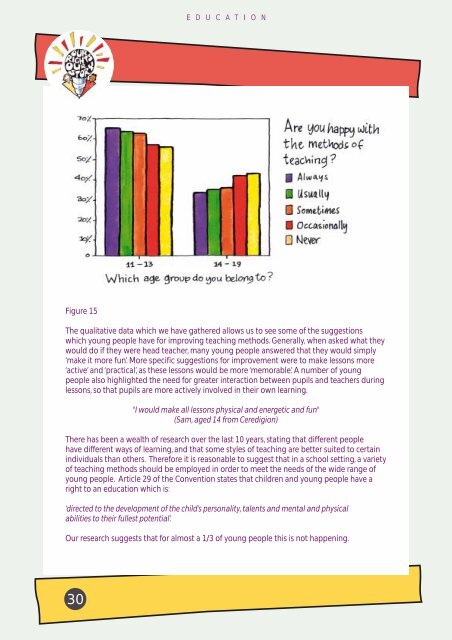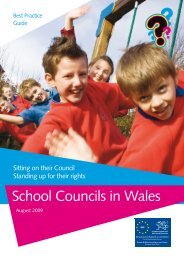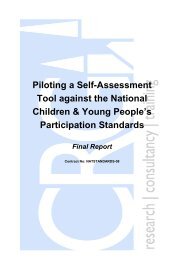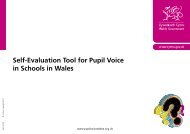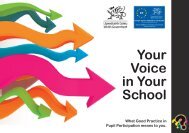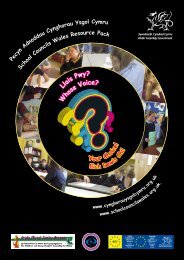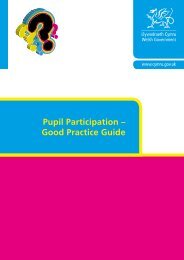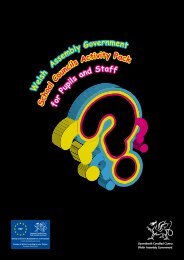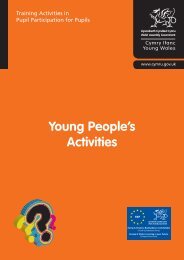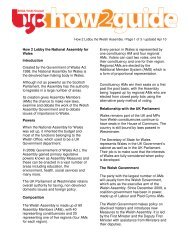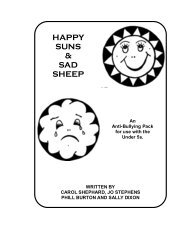Our Rights, Our Story - Funky Dragon
Our Rights, Our Story - Funky Dragon
Our Rights, Our Story - Funky Dragon
You also want an ePaper? Increase the reach of your titles
YUMPU automatically turns print PDFs into web optimized ePapers that Google loves.
E D U C A T I O N<br />
Figure 15<br />
The qualitative data which we have gathered allows us to see some of the suggestions<br />
which young people have for improving teaching methods. Generally, when asked what they<br />
would do if they were head teacher, many young people answered that they would simply<br />
‘make it more fun’. More specific suggestions for improvement were to make lessons more<br />
‘active’ and ‘practical’, as these lessons would be more ‘memorable’. A number of young<br />
people also highlighted the need for greater interaction between pupils and teachers during<br />
lessons, so that pupils are more actively involved in their own learning.<br />
"I would make all lessons physical and energetic and fun"<br />
(Sam, aged 14 from Ceredigion)<br />
There has been a wealth of research over the last 10 years, stating that different people<br />
have different ways of learning, and that some styles of teaching are better suited to certain<br />
individuals than others. Therefore it is reasonable to suggest that in a school setting, a variety<br />
of teaching methods should be employed in order to meet the needs of the wide range of<br />
young people. Article 29 of the Convention states that children and young people have a<br />
right to an education which is:<br />
‘directed to the development of the child’s personality, talents and mental and physical<br />
abilities to their fullest potential’.<br />
<strong>Our</strong> research suggests that for almost a 1/3 of young people this is not happening.<br />
30


